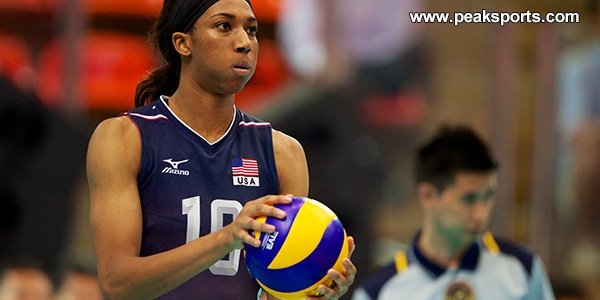Mental Toughness Lessons for Volleyball
Most people are familiar with the saying, “Sports are 90% mental and 10% physical.”
Well we aren’t out there playing chess, right?
Sports are 90% physical. However, that last 10%, the mental part is what can take your game to 100%.
While in high school, I went to a volleyball camp at Duke University. I was invited to the camp several summers in a row and one of my favorite parts was being able to talk with the players and ask them questions about the game.
During my junior year, I asked one of the outside players at the time what took her game to the next level. She said the usual… more reps, competitive experiences, having different coaches, etc.
She also commented, “If I had to choose one thing though, it’d be my mental game.”
At the time, I was unfamiliar with mental toughness. I had coaches that would say, “You have to be mentally tough,” but I didn’t understand all that it entailed or how to become mentally tough.
This outside player at Duke was a 6-rotation player, and she explained to me that understanding the mental game and training her mind influenced her ability to be a 6-rotation player.
Serve receive may be one of the most difficult tasks in volleyball. Many reasons might impact this struggle, such as the pace of the ball, the distance it travels, wanting to start the play with a good pass, a “3”, being pressured to get a first ball kill, not wanting to feel frustrated or embarrassed if you shank a ball, and anything similar.
This particular outside was an excellent attacker, but she struggled with passing, especially in serve receive.
She told me that she had mental coaching once she got to Duke, and through the mental training she learned ways to be successful in serve receive. She learned how to take her game to the next level.
After that conversation with a collegiate player in Cameron Indoor Stadium, I wanted to start learning more about the mental game as a player. I began to research “mental toughness” and read a book or two about the mental game.
From that, I learned a pre-match routine as well as a pre-serve and serve receive routine. Additionally, I began talking to myself in a more positive, confident way after mistakes and even in preparation for a match.
Those slight changes in my mindset influenced my ability to reach the next level of my game.
If you want to improve your mental skills as a volleyball player, work with a mental coach, read mental training books, listen to our podcasts on the mental game; tap into resources that help you gain an understanding and apply your knowledge.
When you become aware of your own mental game, you can more easily make improvements.
Train your mind like you train your body. And, how often do you train your body?
Learn more about Dr. Megan’s one-on-one mental training programs for volleyball players here:
Boost Your Self-Confidence With Expert Mental Game Coaching!
Expert mental game coach Dr. Megan Melchiorre can help you overcome your volleyball mental game issues with personal coaching.
You can work with Dr. Megan Melchiorre herself in Orlando, Florida or via Skype, FaceTime, or telephone. Call us toll free at 888-742-7225 or contact us for more information about the different coaching programs we offer!
Dr. Megan Melchiorre is a mental game coach specializing in volleyball and is the newest member of the Peak Performance Team starting in office May, 2018. She competed collegiality in volleyball and coaches club volleyball teams.
You can learn more about our mental coaching programs for volleyball players here.
Download Our Free Volleyball Mental Preparation Report!
Discover the mental game secrets to performing serve receive well for volleyball players.
Download our free sports psychology for volleyball report:
Mental Preparation Secrets For Serve Receive: What Every Player And Coach Needs to Know
You’ll discover:
- How to use your mind as an asset instead of a hindrance during serve receive.
- A critical mental error that can undermine your on-court performance!
- How to mentally prepare to perform well during serve receive.
- How to focus your mind and trust your skills using an pre-serve routine.

